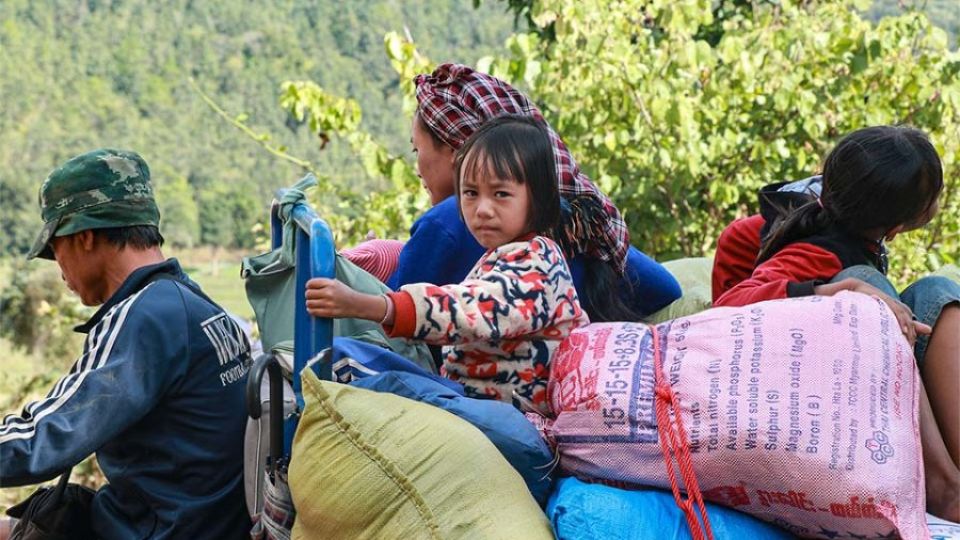February 3, 2025
JAKARTA – Feb. 1, 2025, marks four years since Myanmar’s military seized power, derailing the country’s fragile democratic transition. Since that day, the people of Myanmar have faced unrelenting atrocities: Airstrikes that terrorize communities, arbitrary arrests silencing dissent, mass displacement and a crumbling economy.
Despite these immense challenges, the people of Myanmar have shown extraordinary courage and determination in their fight for freedom.
ASEAN has repeatedly expressed its commitment to a “Myanmar-owned and -led peace process”. Yet, how to translate this aspiration into meaningful action remains unclear. ASEAN cannot afford to mistake the junta’s control for legitimacy.
Any peace process that engages solely with the junta while excluding key stakeholders, including ethnic armed organizations and civil society groups, is destined to fail. Genuine solutions require an inclusive dialogue that reflects the diversity and resilience of Myanmar’s people.
The voices of Myanmar’s citizens must be at the center of any path to peace. These are the voices that have long called for justice, democracy and an end to military dominance. Without their input and leadership, efforts to resolve the crisis will remain hollow, providing no real path to stability or reconciliation.
ASEAN and the broader international community must listen to and amplify these voices, taking tangible steps to support the people’s fight for dignity and self-determination.
At the core of Myanmar’s struggle lies the aspiration for a federal democratic union. Decades of military rule and centralized governance have marginalized ethnic minorities, fueling grievances and perpetuating conflict.
The people of Myanmar, particularly its ethnic communities, envision a nation where their rights, identities and autonomy are respected; a system that decentralizes power, ensures equitable representation and protects minority rights. This vision is not merely aspirational, but essential for sustainable peace and reconciliation.
Ethnic resistance organizations, such as the Karen National Union and the Kachin Independence Organization, have consistently advocated for an inclusive governance, envisioning a future where all communities have an equal stake. Their demands for equality and autonomy reflect the broader aspirations of Myanmar’s people to create a society free from systemic discrimination and military oppression
Justice is a cornerstone of Myanmar’s path forward. The military’s long history of atrocities, including the genocide of the Rohingya and ongoing massacres in ethnic regions, cannot be ignored. Survivors and victims’ families demand accountability and the international community must respond.
An independent mechanism, supported by ASEAN and the United Nations, is needed to investigate and prosecute crimes committed by the junta. Without justice, there can be no lasting peace or reconciliation.
Myanmar’s people have made their demands clear: They want an end to military dominance in politics. The Tatmadaw’s self-proclaimed role as the “guardian of national unity” has been thoroughly discredited by its abuses, economic mismanagement and failures.
The people overwhelmingly reject its monopoly on power. Transforming the military into a professional institution that serves, rather than subjugates, the people is a non-negotiable step toward a democratic Myanmar.
The economic devastation wrought by the junta’s misrule has pushed millions into poverty and forced many to flee the country. Ethnic communities have suffered disproportionately, as the military exploits natural resources in their regions, enriching itself while leaving local populations impoverished.
The people of Myanmar envision an economy rooted in equity, transparency, and sustainability; one that invests in education, healthcare and opportunities for all, rather than perpetuating cycles of corruption and exploitation.
The people of Myanmar cannot achieve these aspirations alone. International solidarity is vital. ASEAN’s Five-Point Consensus, adopted in 2021, has proven ineffective and must be replaced with a bolder, more principled approach.
ASEAN member states must take collective action to refuse to legitimize the military’s sham elections, limit the junta’s participation in strategic decision making in ASEAN and freeze its membership in ASEAN.
Rather, ASEAN should strengthen direct engagement with the National Unity Government, ethnic nationality groups and civil society in fostering inclusive solutions for Myanmar.
Beyond ASEAN, democratic nations and the UN must act decisively. A global arms embargo, increased humanitarian aid and the release of political prisoners are urgent priorities. The international community must firmly support the people of Myanmar and reject any attempts by the junta to consolidate power.
This revolution is being led by women and youth, groups historically excluded from power in Myanmar. Women have taken on leadership roles in resistance movements and young people have shown unparalleled bravery and creativity in confronting the junta. Their contributions are indispensable to Myanmar’s future. A truly democratic Myanmar must prioritize gender equality and empower its youth to lead.
As Myanmar marks four years under military rule, the international community faces a critical juncture. The choice is unmistakable: Stand by as the junta plunges the country deeper into chaos or take decisive action to support the people’s aspirations for freedom and justice.
The path forward will be fraught with challenges, but the people of Myanmar have demonstrated remarkable determination. Their vision of a federal democratic union, built on justice, equality and inclusion remains unwavering. ASEAN, the UN and democratic allies must rally behind this vision with bold, principled action.
The people of Myanmar have not given up hope. Neither should we.


